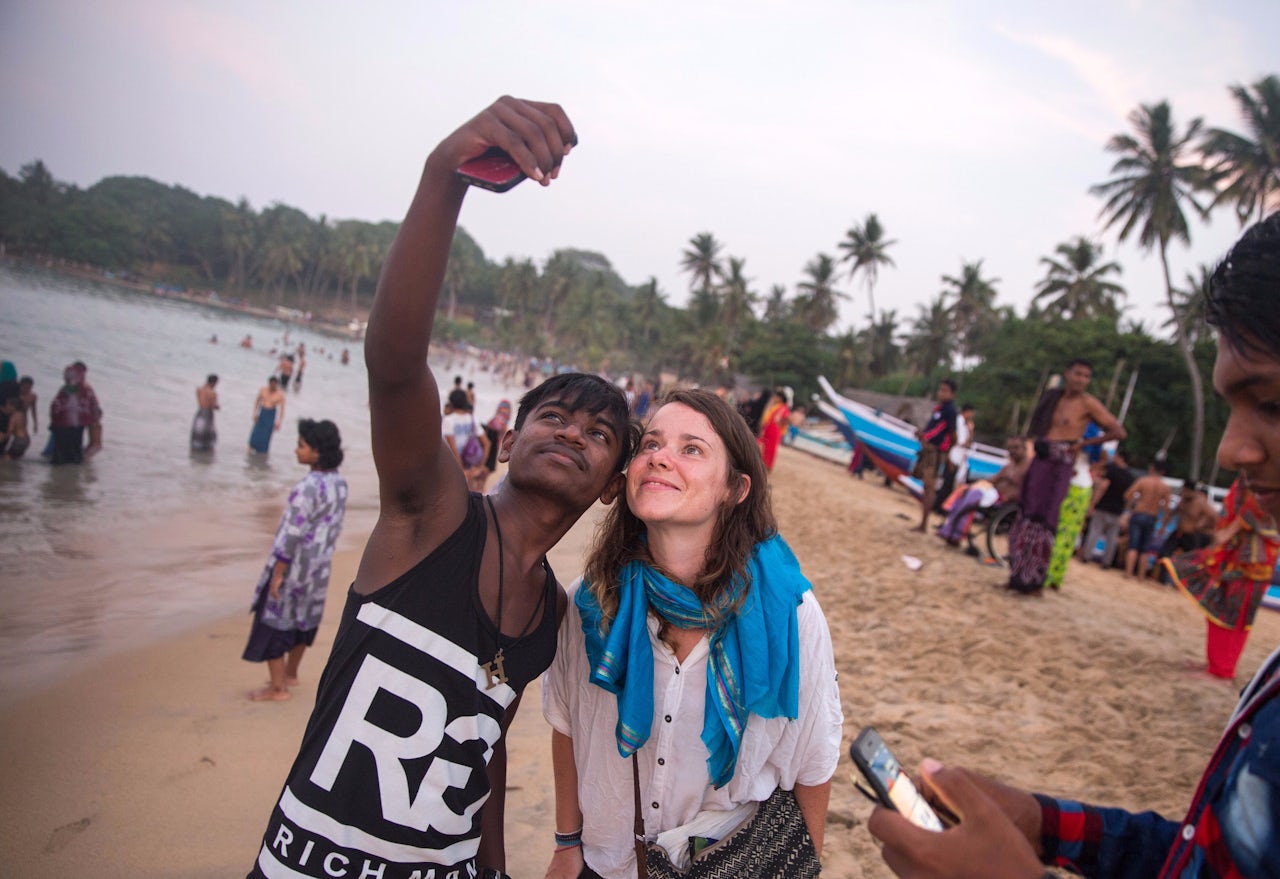On August 14, Vice and Airbnb announced a partnership and contest that will take winners on guided tours led by local, Vice-vetted experts in some of the world’s most popular urban travel destinations. One hundred winners of the contest, which ends Friday, will have the chance to participate in such immersive experiences as having a private burlesque lesson in Paris, producing and performing a dance track at a “party you won’t forget” in the Khayelitsha township in Cape Town, South Africa, attending a voguing dance class and party in Harlem, and “explor[ing] the unique nightlife” of Tokyo’s gay district and “hidden queer world”.
The partnership is a way of marketing the travel company’s Experiences packages, which launched in November 2016, to millennials while capitalizing on the reputation for fearless travel and “edginess” that Vice has carefully curated over the years. But considering Vice’s penchant for helicopter journalism, in which they send correspondents (usually white) into “dangerous” or “bizarre” or otherwise exoticized communities (usually of black and brown people) to offer their largely contextless and sensationalist takes on established communities, the only thing winners of the contest will be experiencing is the kind of colonialist-influenced tourism that presents people as part of a consumable product.
The two companies are cashing in on what is an already booming trend. As tourism industry websites like Skift have highlighted and lifestyle trend-watching publications like Vogue pointed out, travel companies are increasingly marketing immersive and “authentic” travel experiences to younger customers who are more mindful of the impact their spending has on the world. Consumers don’t want to be complicit in inhumane labor practices or stay in Western-style resorts that are walled off from local culture. What travelers do want is to feel like they can participate in something in the most authentic way possible, that they can belong to community when they are not in their own.
Travel experiences like the ones marketed by Vice and Airbnb promise the chance to travel without feeling like an outsider.
While the spiritual transformational potential of travel has been celebrated in travel narratives and travel marketing alike, the Vice/Airbnb partnership — which promotes exclusivity and access with qualifiers like “secret”, “underground”, “partially-hidden”, “rare”, and, more plainly “exclusive” — exposes a relationship that experiential and transformational travel are always negotiating: the line between participant and visitor. With the arguable exception of the Paris trip, cheekily titled “Lust in Translation,” each of the travel experiences offered as part of the contest promise access to and experiences in places that were made exclusive as a byproduct of oppression. Voguing was born in Harlem’s ballroom culture and LGBT community in the face of a homophobic, anti-black mainstream culture; the same goes for homophobia’s role in necessitating Tokyo’s LGBT nightlife and manga scenes. The EDM scene of Cape Town’s Khayelitsha township cannot be divorced from the area’s history of apartheid. But Vice and Airbnb erase these social boundaries with the participation of local, credible tour guides and curated activities, like dance lessons and parties, designed to be the perfect Instagram backdrops.
“Today, access is the new authentic,” wrote Greg Oates for Skift this week. “You are what you share… The goal is to experience something that few people can, and equally important, be able to capture it and share it digitally.” That kind of Instagram authenticity and shareability that Oates describes is exactly the kind of faux-exclusivity and expertise that Vice has built its brand on. This clash between experiencing and belonging is constantly at the forefront for those who actually live in these communities, as well as in the wider world. In gentrifying neighborhoods in cities across the U.S., longtime residents and new property owners are clashing over who owns a neighborhood’s history and the trauma that comes with it. At the height of media attention on Standing Rock, white visiting volunteers were called out for treating the demonstrations and camp like a music festival. And, as writer Jessica Crispin explained last month in an article about travel-community company Roam, even living and working in a place for several months at a time doesn’t guarantee you an “authentic experience” of the culture there or guarantee you against doing actual residents harm.
What experiential and transformative travel experiences like the ones marketed by Vice and Airbnb promise is the chance to travel without feeling like an outsider. But I’d argue that feeling like an outsider is one of the only “authentic” experiences travel and tourism have to offer, and it’s a feeling that can keep travellers from figuratively bulldozing over the places and cultures they seek to visit. Traveling is a rightly lauded privilege that can very well change a person’s life and, like most privileges, it is something only the wealthier classes have access to. But part of the transformational power of travel lies in knowing your place as a visitor, understanding that you can never really buy access to and center yourself in local communities, but endeavoring to learn about them anyways without prioritizing the space you take up. One of the bravest things any traveler can do today is admit they are coming from a position of unknowing that they cannot easily or quickly shake.
Vice and Airbnb’s partnership, and Airbnb’s Experiences packages in general, present exclusivity and access as the antidote to being an outsider. But as long as travel companies continue to market the idea that access to communities can be purchased as easily as plane tickets and surf lessons, travelers will continue to run into the type of inauthenticity and exploitation they may have originally been seeking to avoid.


